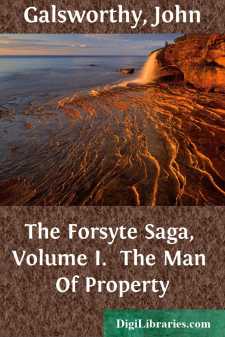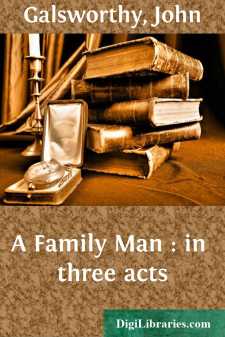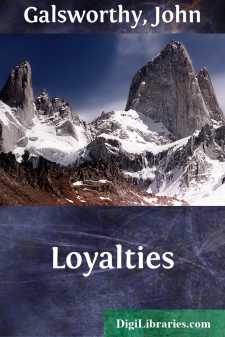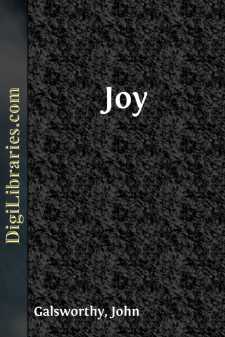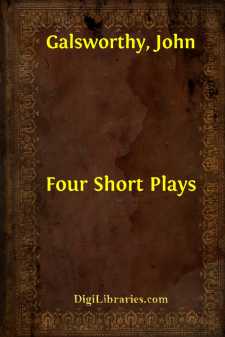Categories
- Antiques & Collectibles 13
- Architecture 36
- Art 48
- Bibles 22
- Biography & Autobiography 813
- Body, Mind & Spirit 142
- Business & Economics 28
- Children's Books 17
- Children's Fiction 14
- Computers 4
- Cooking 94
- Crafts & Hobbies 4
- Drama 346
- Education 46
- Family & Relationships 57
- Fiction 11829
- Games 19
- Gardening 17
- Health & Fitness 34
- History 1377
- House & Home 1
- Humor 147
- Juvenile Fiction 1873
- Juvenile Nonfiction 202
- Language Arts & Disciplines 88
- Law 16
- Literary Collections 686
- Literary Criticism 179
- Mathematics 13
- Medical 41
- Music 40
- Nature 179
- Non-Classifiable 1768
- Performing Arts 7
- Periodicals 1453
- Philosophy 64
- Photography 2
- Poetry 896
- Political Science 203
- Psychology 42
- Reference 154
- Religion 513
- Science 126
- Self-Help 84
- Social Science 81
- Sports & Recreation 34
- Study Aids 3
- Technology & Engineering 59
- Transportation 23
- Travel 463
- True Crime 29
John Galsworthy
John Galsworthy (1867-1933) was an English novelist and playwright renowned for his series of novels collectively titled "The Forsyte Saga," which offers a critical portrayal of the upper-middle-class in Britain during the late 19th and early 20th centuries. He was awarded the Nobel Prize in Literature in 1932 for his distinguished art of narration which takes its highest form in "The Forsyte Saga." Galsworthy was also a social activist, advocating for prison reform, women's rights, and animal welfare throughout his life.
Author's Books:
Sort by:
by:
John Galsworthy
ABOUT CENSORSHIP Since, time and again, it has been proved, in this country of free institutions, that the great majority of our fellow-countrymen consider the only Censorship that now obtains amongst us, namely the Censorship of Plays, a bulwark for the preservation of their comfort and sensibility against the spiritual researches and speculations of bolder and too active spirits—it has become time...
more...
by:
John Galsworthy
AWAKENING Through the massive skylight illuminating the hall at Robin Hill, the July sunlight at five o'clock fell just where the broad stairway turned; and in that radiant streak little Jon Forsyte stood, blue-linen-suited. His hair was shining, and his eyes, from beneath a frown, for he was considering how to go downstairs, this last of innumerable times, before the car brought his father and...
more...
by:
John Galsworthy
PREFACE: "The Forsyte Saga" was the title originally destined for that part of it which is called "The Man of Property"; and to adopt it for the collected chronicles of the Forsyte family has indulged the Forsytean tenacity that is in all of us. The word Saga might be objected to on the ground that it connotes the heroic and that there is little heroism in these pages. But it is used...
more...
by:
John Galsworthy
ACT I SCENE I The study of JOHN BUILDER in the provincial town of Breconridge.A panelled room wherein nothing is ever studied, except perhapsBUILDER'S face in the mirror over the fireplace. It is, however,comfortable, and has large leather chairs and a writing table in thecentre, on which is a typewriter, and many papers. At the back is alarge window with French outside shutters, overlooking the...
more...
by:
John Galsworthy
ACT I SCENE I The dressing-room of CHARLES WINSOR, owner of Meldon Court, nearNewmarket; about eleven-thirty at night. The room has pale greywalls, unadorned; the curtains are drawn over a window Back LeftCentre. A bed lies along the wall, Left. An open door, Right Back,leads into LADY ADELA's bedroom; a door, Right Forward, into a longcorridor, on to which abut rooms in a row, the whole length of...
more...
by:
John Galsworthy
ACT I The time is morning, and the scene a level lawn, beyond whichthe river is running amongst fields. A huge old beech treeovershadows everything, in the darkness of whose hollow manythings are hidden. A rustic seat encircles it. A low wallclothed in creepers, with two openings, divides this lawn fromthe flowery approaches to the house. Close to the wall there isa swing. The sky is clear and sunny....
more...
by:
John Galsworthy
ACT I SCENE I The scene is a well-lighted, and large, oak-panelled hall, withan air of being lived in, and a broad, oak staircase. Thedining-room, drawing-room, billiard-room, all open into it; andunder the staircase a door leads to the servants' quarters. Ina huge fireplace a log fire is burning. There are tiger-skinson the floor, horns on the walls; and a writing-table againstthe wall opposite...
more...
by:
John Galsworthy
ACT I The MARCH'S dining-room opens through French windows on one of thosegardens which seem infinite, till they are seen to be coterminouswith the side walls of the house, and finite at the far end, becauseonly the thick screen of acacias and sumachs prevents another housefrom being seen. The French and other windows form practically allthe outer wall of that dining-room, and between them and the...
more...
by:
John Galsworthy
HALL-MARKED The scene is the sitting-room and verandah of HER bungalow. The room is pleasant, and along the back, where the verandahruns, it seems all window, both French and casement. There is adoor right and a door left. The day is bright; the timemorning. [HERSELF, dripping wet, comes running along the verandah,through the French window, with a wet Scotch terrier in herarms. She vanishes through the...
more...
by:
John Galsworthy
A PARTY AT WORSTED SKEYNES The year was 1891, the month October, the day Monday. In the dark outside the railway-station at Worsted Skeynes Mr. Horace Pendyce's omnibus, his brougham, his luggage-cart, monopolised space. The face of Mr. Horace Pendyce's coachman monopolised the light of the solitary station lantern. Rosy-gilled, with fat close-clipped grey whiskers and inscrutably pursed...
more...




